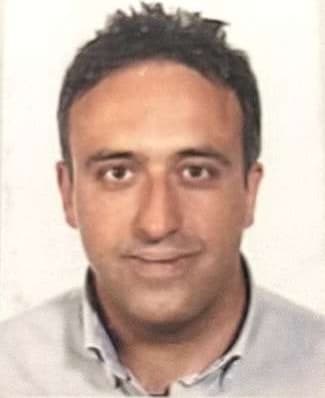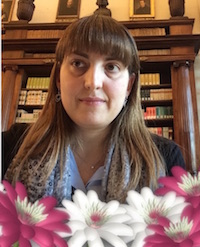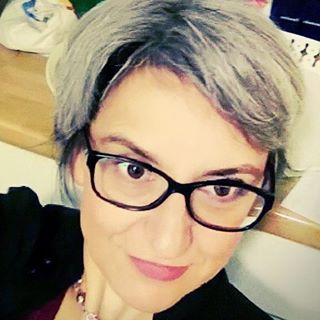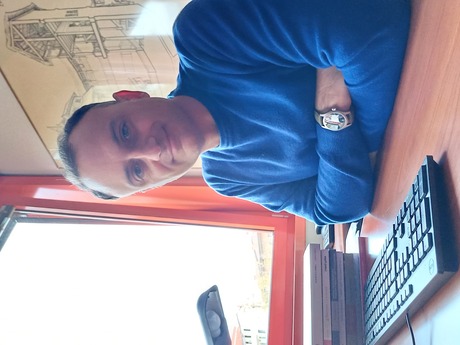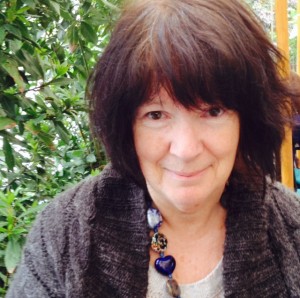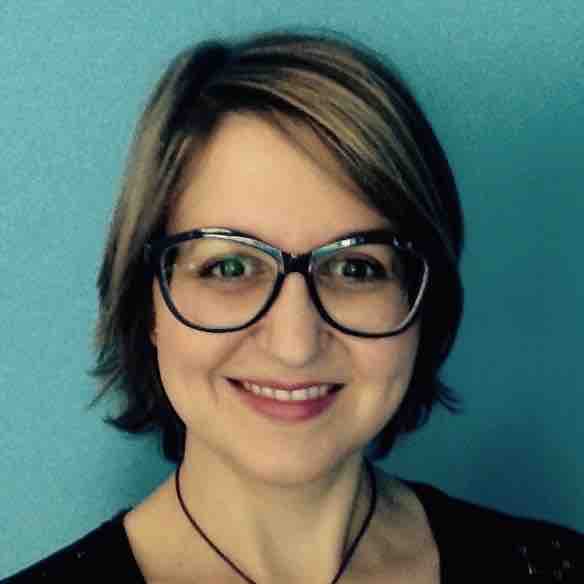Studying at the University of Verona
Here you can find information on the organisational aspects of the Programme, lecture timetables, learning activities and useful contact details for your time at the University, from enrolment to graduation.
Academic calendar
The academic calendar shows the deadlines and scheduled events that are relevant to students, teaching and technical-administrative staff of the University. Public holidays and University closures are also indicated. The academic year normally begins on 1 October each year and ends on 30 September of the following year.
Course calendar
The Academic Calendar sets out the degree programme lecture and exam timetables, as well as the relevant university closure dates..
| Period | From | To |
|---|---|---|
| I semestre (Lingue e letterature straniere) | Sep 30, 2019 | Jan 11, 2020 |
| II semestre (Lingue e letterature straniere) | Feb 17, 2020 | May 30, 2020 |
| Session | From | To |
|---|---|---|
| ESAMI LINGUE - sessione invernale | Jan 13, 2020 | Feb 15, 2020 |
| ESAMI LINGUE - sessione estiva | Jun 3, 2020 | Jul 25, 2020 |
| ESAMI LINGUE - sessione autunnale | Aug 24, 2020 | Sep 19, 2020 |
| Session | From | To |
|---|---|---|
| LAUREE LINGUE - sessione autunnale (a.a. 2018/19) | Nov 4, 2019 | Nov 9, 2019 |
| LAUREE LINGUE - sessione straordinaria (a.a. 2018/19) | Mar 30, 2020 | Apr 4, 2020 |
| LAUREE LINGUE - sessione estiva (a.a. 2019/20) | Jul 6, 2020 | Jul 11, 2020 |
| LAUREE LINGUE - sessione autunnale (a.a. 2019/20) | Nov 2, 2020 | Nov 7, 2020 |
| LAUREE LINGUE - sessione straordinaria (a.a. 2019/20) | Apr 7, 2021 | Apr 13, 2021 |
| Period | From | To |
|---|---|---|
| Festa Ognissanti (Lingue) | Nov 1, 2019 | Nov 1, 2019 |
| Sospensione delle lezioni | Nov 2, 2019 | Nov 2, 2019 |
| Vacanze di Natale (Lingue) | Dec 23, 2019 | Jan 6, 2020 |
| Vacanze di Pasqua (Lingue) | Apr 10, 2020 | Apr 14, 2020 |
| Festa della Liberazione (Lingue) | Apr 25, 2020 | Apr 25, 2020 |
| Festa del Lavoro (Lingue) | May 1, 2020 | May 1, 2020 |
| Sospensione delle lezioni | May 2, 2020 | May 2, 2020 |
| Festa del Santo Patrono (Lingue) | May 21, 2020 | May 21, 2020 |
| Sospensione delle lezioni | May 22, 2020 | May 23, 2020 |
| Festa della Repubblica (Lingue) | Jun 2, 2020 | Jun 2, 2020 |
| Vacanze estive (Lingue) | Aug 10, 2020 | Aug 15, 2020 |
Exam calendar
Exam dates and rounds are managed by the relevant Foreign Languages and Literatures Teaching and Student Services Unit.
To view all the exam sessions available, please use the Exam dashboard on ESSE3.
If you forgot your login details or have problems logging in, please contact the relevant IT HelpDesk, or check the login details recovery web page.
Should you have any doubts or questions, please check the Enrollment FAQs
Academic staff
 silvia.baroni@univr.it
silvia.baroni@univr.it
 stella.merlin@univr.it
stella.merlin@univr.it
 sara.paolini@univr.it
sara.paolini@univr.it
 massimo.scotti@univr.it
massimo.scotti@univr.it
Study Plan
The Study Plan includes all modules, teaching and learning activities that each student will need to undertake during their time at the University.
Please select your Study Plan based on your enrollment year.
1° Year
| Modules | Credits | TAF | SSD |
|---|
1st foreign language2nd foreign language1st foreign literature2nd foreign literature1 module to be chosen between2° Year activated in the A.Y. 2020/2021
| Modules | Credits | TAF | SSD |
|---|
1st foreign language2nd foreign language1st foreign literature2nd foreign literature1 module to be chosen between the following3° Year activated in the A.Y. 2021/2022
| Modules | Credits | TAF | SSD |
|---|
1st foreign language2nd foreign language1st foreign literature2nd foreign literature1 module among the following (philology related to 1st or 2nd foreign language)1 module to be chosen between the following| Modules | Credits | TAF | SSD |
|---|
1st foreign language2nd foreign language1st foreign literature2nd foreign literature1 module to be chosen between| Modules | Credits | TAF | SSD |
|---|
1st foreign language2nd foreign language1st foreign literature2nd foreign literature1 module to be chosen between the following| Modules | Credits | TAF | SSD |
|---|
1st foreign language2nd foreign language1st foreign literature2nd foreign literature1 module among the following (philology related to 1st or 2nd foreign language)1 module to be chosen between the following| Modules | Credits | TAF | SSD |
|---|
Legend | Type of training activity (TTA)
TAF (Type of Educational Activity) All courses and activities are classified into different types of educational activities, indicated by a letter.
Russian Literature 3 (2021/2022)
Teaching code
4S002953
Credits
9
Language
Russian
Also offered in courses:
- Russian Literature 3 of the course Bachelor's degree in Languages and literatures for publishing and digital media
Scientific Disciplinary Sector (SSD)
L-LIN/21 - SLAVIC STUDIES
The teaching is organized as follows:
Parte I
Parte II
Learning outcomes
The course completes the three-year path aimed at acquiring the basics of Russian literary and cultural history. It is therefore linked to courses held in the preceding years complementing them and undertaking in-depth examination of topics related to Russian works and movements. At the end of the course students will be able to: 1) identify the main dynamics of modern and contemporary Russian historical and literary processes; 2) carry out a textual and comparative analysis using the acquired knowledge; 3) express autonomous and coherent opinions about outstanding moments of Russian cultural and historical development and analyse them properly.
Program
Русская культура через фильтр оперы: главные этапы истории оперы в России от XVII до XX веков. Курс представляет обзор развития музыкального театра в России от начала местной традиции до второй половины XX века. Будут приняты во внимание некоторые из наиболее значимых примеров, среди которых есть и шедевры, которые сегодня привлекают внимание крупнейших российских и зарубежных театров. Уроки будут направлены на то, чтобы подчеркнуть тесную связь между музыкальным и литературным миром, и в то же время дать представление об эволюции выразительных языков в двух секторах – литературе и музыке. Будут рассмотрены следующие тексты, в соответствующем контексте генезиса, рецепции и творческого пути их авторов:
A. O. Аблесимов, «Мельник – колдун, обманщик и сват»
A. S. Пушкин, «Руслан и Людмила», «Каменный гость», «Борис Годунов», «Скупой рыцарь»
A. A. Шаховской, «Иван Сусанин»
Н. В. Гоголь, «Нос», «Женитьба», «Мёртвые души»
П.И. Чайковский, «Опричник»
Основной язык курса – итальянский, но анализируемые тексты будут преимущественно на русском языке.
Учитывая методику проведения курса, запланированного на первый семестр, программа не отличается для посещающих и не посещающих студентов.
Отрывки, выбранные из наиболее труднодоступных текстов, будут предоставлены преподавателем. Для этого смотрите на страницу Moodle курса.
Студенты Erasmus могут обращаться к преподавателю, для назначения альтернативной библиографии.
Programme
The course will provide an overview of the evolution of musical theatre in Russia from the beginning of the local tradition to modern developments (18th-20th centuries). Some of the most significant examples will be taken into consideration, including masterpieces that today represent an attraction in major Russian and international theaters. The lessons will aim to highlight the close link between the musical and the literary worlds, and at the same time give an account of the evolution of expressive languages in the two sectors. The following texts inserted in their respective genesis context and in the creative path of their authors will be treated:
A. O. Ablesimov, The Miller-Magician, Cheat and Matchmaker
A. S. Puškin, Ruslan and Lyudmila, The Stone Guest, Boris Godunov, The Miserly Knight
A.A. Shakhovskoy, Ivan Susanin
N. V. Gogol’, The Nose, The Marriage, Dead Souls
P.I. Čajkovskij, Oprichnik
The course will be held in Italian, but it will include reading and analyzing some passages in the original language.
Given the method of delivery of the course scheduled for the first semester, the programme does not differ for attending and non-attending students.
Passages selected that are hardly accessible will be made available by the teacher. For this see the Moodle page of the course.
Erasmus students can contact the teacher for the assignment of an alternative bibliography.
Bibliography
Examination Methods
ASSESSMENT METHODS AND CRITERIA
Exam: oral exam.
The questions will be consistent with the fundamental issues of the course.
At the exam, one of the aspects of knowledge verification will be the reading, translation and commentary of literary texts.
The evaluation will follow the following criteria:
- correctness and completeness of the responses in terms of content;
- analytical skills;
- clarity of presentation, argumentative ability and knowledge of the specific vocabulary.
Prerequisites: to be admitted to the exam, students should have passed the exams of Russian language 2 and Russian literature 2.
Assessment method: single mark out of thirty. During the evaluation phase, the quality of personal reworking and the ownership of language with which the topics will be exposed will be taken into account.
Type D and Type F activities
To discover all the teaching activities accredited by the foreign teaching college click here
Career prospects
Module/Programme news
News for students
There you will find information, resources and services useful during your time at the University (Student’s exam record, your study plan on ESSE3, Distance Learning courses, university email account, office forms, administrative procedures, etc.). You can log into MyUnivr with your GIA login details: only in this way will you be able to receive notification of all the notices from your teachers and your secretariat via email and soon also via the Univr app.
Student login and resources
Gestione carriere
Assegnazione tutore
Attività accreditate D/F
Calendario didattico dettagliato
Cambio lingua curriculare
Competenze informatiche
Competenze linguistiche (prima e seconda lingua)
Competenze linguistiche in triennale (terza lingua CFU F)
Compilazione del piano didattico
Corso di Lingua portoghese
Erasmus+ e altre esperienze all'estero
Linguistic training CLA
Presentazione dei corsi di studio e Open day
Graduation
Saperi minimi
Stage e tirocini
Le attività di stage sono finalizzate a far acquisire allo studente una conoscenza diretta in settori di particolare interesse per l’inserimento nel mondo del lavoro e per l’acquisizione di abilità professionali specifiche.
Le attività di stage sono svolte sotto la diretta responsabilità di un singolo docente presso studi professionali, enti della pubblica amministrazione, aziende accreditate dall’Ateneo veronese.
I crediti maturati in seguito ad attività di stage saranno attribuiti secondo quanto disposto nel dettaglio dal “Regolamento d’Ateneo per il riconoscimento dei crediti maturati negli stage universitari” vigente.
- Tutte le informazioni in merito agli stage per futuri studenti sono disponibili alla pagina Stage e tirocini.
- Tutte le informazioni in merito agli stage per studenti iscritti sono pubblicate in MyUnivr - come fare per - stage e tirocini.
- Tutte le informazioni in merito agli stage per le aziende sono disponili alla pagina Stage e tirocini per azienze.
Ulteriori informazioni al seguente link https://www.univr.it/it/i-nostri-servizi/gestione-carriere-studenti-lingue-e-letterature-straniere/stage-e-tirocini-lingue-e-letterature-straniere

 +39 045802 8409
+39 045802 8409






